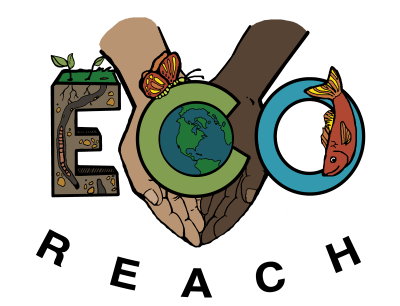By: Amelia Foley, EcoReach 2019 intern
When people hear the word “ecology,” it often sparks a traditional idea of the term— they are perhaps reminded of their early science classes and think of food webs or producers and consumers. According to Merriam-Webster, ecology is defined as “a branch of science concerned with the interrelationship of organisms and their environments.” This broad definition widens the scope of what people typically think ecology is comprised of and reveals its interdisciplinary nature. It is this very nature that allows ecology to have many applications, including examining the interrelations between human beings and their environments, as Lawrence Green, Lucie Richard, and Louise Potvin imply in their 1996 paper “The Ecological Foundations of Health Promotion.”
As we enter this field thinking of human beings, their environments, and their behavior, we tread on the territory of health promotion and public health. These disciplines have long been influenced by ecology. There is even theory based in an ecological approach to health promotion, which has foundations as far back as Darwin’s concepts for the web of life, the role of the environment, adaptation, and survival (Green et al. 1996).
The application of these traditional ecological concepts to human communities is so important because of how dependent public health is on one’s ecosystem. In fact, Green et al. (1996) frames public health as “a product of interdependence between individual and subsystems of ecosystem” including health influences like family, community, culture, and physical or social environments. This means that there must be enough resources within a community for conditions to be conducive for a healthy lifestyle, including information, education, and the ability to make choices about health, and that health promotion professionals must advocate for this culture change.
There are many ecological concepts which inform public health and health promotion as well—including reciprocal determinism, which mirrors one of the core missions of public health: to “empower individuals by giving them control over determinants of health” (Green et al. 1996). There is also environmental specificity, which plays an important role in behavior theory and tells health promotion specialists that people behave differently in different environments.
Some health promotion specialists struggle to embrace this ecological model of public health because it is complex and all-encompassing. Ecological approaches to health promotion are oftentimes passed over for easier or cheaper strategies which are typically media-based and individually oriented. It is simpler to root for small changes in individual health behavior over time than for a shift in an entire community’s culture. However, in a Western society that puts so much emphasis on individual achievement, it is important to remember our foundations as social creatures and to remember how crucial a supportive and productive environment is to public health and to life in general.
For health promotion specialists, this means working on creating sustainable systems and communities that encourage people to take part in health behaviors, rather than just urging them to find their own willpower and discipline to do it all independently. The idea of seeing things as communities or united systems is a powerful thought that is well-established in ecology and public health; it is a lesson to be learned from the scientific community, something which can and should transcend all disciplines.
References: Green, Lawrence, et al. “The Ecological Foundations of Health Promotion.” The American Journal of Health Promotion, vol. 10, no. 4, 1996, pp. 270-281.




